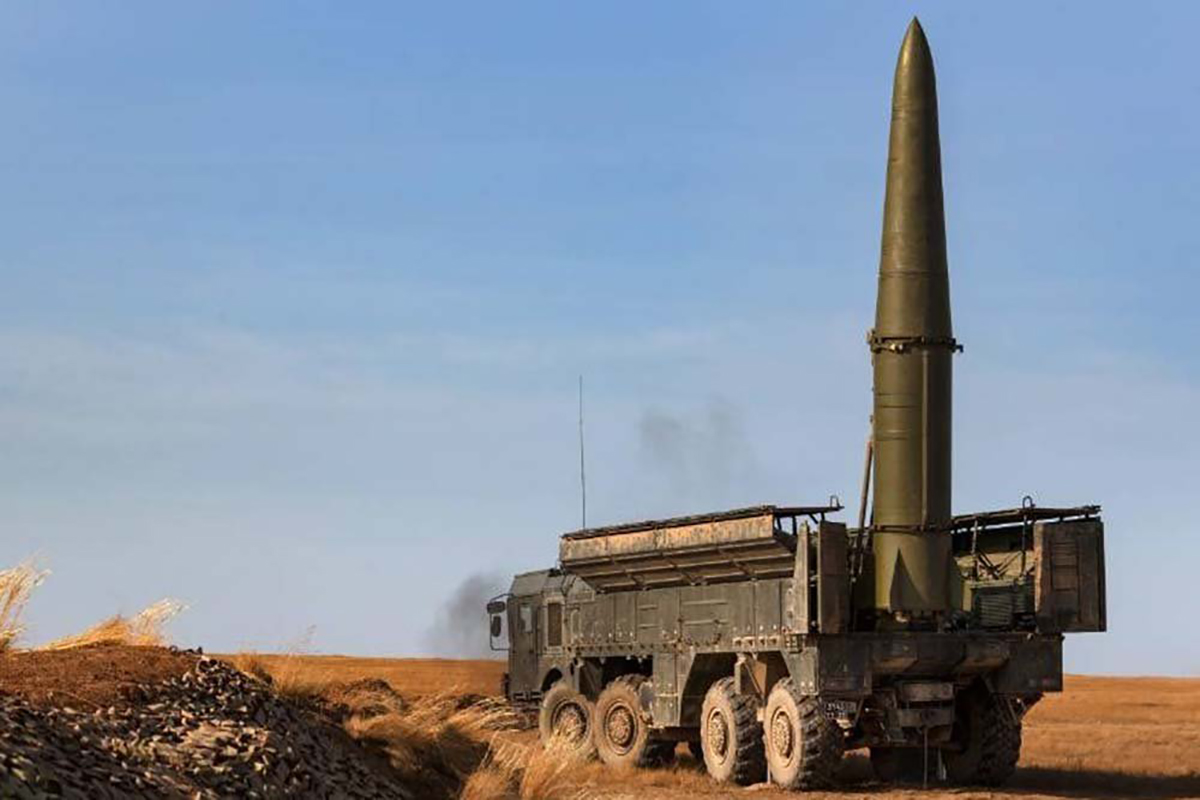Nuclear weapons in Belarus represent another point of no return in relations with the West
 The situation has gotten better
The situation has gotten better

The deployment of Russian nuclear weapons in Belarus, associated with strengthening Western sanctions, represents another point of no return in relations with the West, which will increase attention to the agenda of exiled Belarusian democratic forces.
Following Russian President Putin’s announcement that a tactical nuclear weapons storage facility would open in Belarus on July 1st 2023, EU High Representative for Foreign Affairs and Security Policy, Josep Borrell, threatened Belarus with further sanctions due to irresponsible escalation of the threat to European security.
Warsaw also believes that deploying such weapons further increases tensions associated with Russian aggression against Ukraine and is another step towards drawing Belarus into the gears of the Russian military machine.
NATO also criticised Putin’s statement as “dangerous and irresponsible” nuclear rhetoric, while the Ukrainian Foreign Ministry called the decision “another provocative step”, demanded action by the UN Security Council, and appealed to Belarusians to prevent such actions.
The leader of democratic Belarus, Sviatlana Tsikhanouskaya, called on the international community to demand that Russia cease such threats to international peace and security and impose tough sanctions against the Lukashenka and Putin regimes. She further called on the international community to demand the immediate withdrawal of the Russian military from Belarus and the cessation of Belarus’ participation in Russian aggression against Ukraine.
The German Foreign Ministry assessed Putin’s statement as “a further attempt at nuclear intimidation.”
Meanwhile, the United Transitional Cabinet (UTC) continued to lobby the West regarding Belarus. While visiting the United States, Sviatlana Tsikhanouskaya proposed a plan to:
- deprive the regime of money and resources.
- support the people who are fighting the regime.
- bring the perpetrators of human rights violations to justice.
- ensure that after the fall of the dictatorship it does not return.
- recognise a strong US role in the fight against tyranny.
During these meetings in the United States, other topics raised included:
- creation of a Belarusian program at Harvard, and scholarships for Belarusian students and researchers.
- a “Marshall Plan” for Belarus.
- bringing the Lukashenka regime to justice.
- cooperation with technology companies.
Tsikhanouskaya also discussed the renewal of the Act on Democracy in Belarus with the Speaker of the US House of Representatives, Kevin McCarthy. An important result of the US visit was an undertaking to start a comprehensive strategic dialogue with Belarusian democratic forces and civil society. In addition, the State Department continues to consider the possibility of appointing a special representative for interaction with Belarusian democrats. Meanwhile, on March 24th, the US Treasury Department imposed new sanctions against BelAZ, MAZ, their directors, Lukashenka’s plane and Central Election Committee members.
The European Council once again condemned Belarus’ actions to support Russian aggression against Ukraine and urged Belarus not to provide material or other support for Russia’s aggressive war.
The 38 participating states of the OSCE have invoked the Moscow Mechanism to examine threats posed by human rights violations and abuses in Belarus. In a joint statement, referring to the report of the UN High Commissioner for Human Rights, the 38 members note that the human rights situation in Belarus continues to deteriorate. Earlier, the UN Human Rights Council called for an investigation into human rights violations in Belarus.
The deployment of Russian nuclear weapons in Belarus while the Russian-Ukrainian war rages will lead to the introduction of new sanctions in connection with violation of the Treaty on the Non-Proliferation of nuclear weapons. This will lead to a re-evaluation of Belarus’s status as a complex threat to international security and human rights.
Subscribe to our newsletter




Situation in Belarus
Constitutional referendum: main consequences


 Video
Video
How to count the political prisoners: are the new criteria needed?


 Video
Video
Paternalism In Decline, Belarusian Euroscepticism, And The Influence Of Russia


 Video
Video












